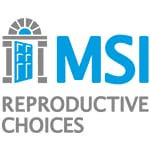Building Behavioral Design Capacity in Global Health Across East Africa
HIGHLIGHTS
- To equip global health professionals to leverage behavioral design in their programs and services, we created the Behavioral Design Bootcamp (BDB) for Strengthening Global Health.
- The BDB’s curriculum taught participants how to apply behavioral design to behavioral challenges experienced in their communities.
- Participants reflected that the BDB expanded their skills in tackling important behavioral challenges through their work.
The Challenge
Organizations that deliver health services and programs globally offer essential care to millions of people, but they face many challenges. Family planning, preventive care, and other critical health services are often underutilized. Health workers may be well-trained and dedicated to their work, but make systematic errors that endanger patients.
Applying a behavioral lens to these health services can, among other things, encourage use of important health services and help health workers comply with clinical protocol. This has important implications for improved health and well-being for families around the globe, and practitioners are eager to learn new skills and approaches that enable them to strengthen what they’re doing.
Our Approach
Close collaborations with public health professionals in past activities demonstrated that there was a great appetite to learn more about behavioral design to strengthen their work. In response, we led a cohort of eight affiliated organizations and programs of IntraHealth International and Marie Stopes International across East Africa through an 18-month program to build capacity in behavioral design. The “Behavioral Design Bootcamp” (BDB) course consisted of three in-person workshops teaching introductory behavioral science concepts and the behavioral design process, as well as continuous coaching through which public health professionals applied behavioral design to a problem they identified within their own organization related to family planning and reproductive health.
The BDB’s curriculum focused on select aspects of behavioral design, including:
- Defining a problem of focus from a behavioral perspective: parsing out the key decisions and actions it involves and stripping away assumptions about what might be driving the problem or what the solution is.
- Diagnosing the behavioral barriers contributing to the problem: identifying the features of an individual’s environment and experience that lead them to decide and act (or fail to do so) in a particular way.
- Designing a solution by generating unique ideas about how to address those barriers, prototyping, and iteratively refining through user testing in communities and health facilities.
Results
Participants built a knowledge of the behavioral design process, comfort in applying it, and generated creative solutions through their practical casework. A sample of the solutions participants developed through the program includes:
- Color-coded “League Table” for the human resources staff to encourage timely submission of reports.
- Behaviorally informed broadcast messages about adolescents and long-acting reversible contraceptives for radio, TV, and WhatsApp.
- Visual cards or flipcharts targeting “shame points” along the voluntary medical male circumcision process to help men make a plan to overcome obstacles.
- Interactive, tactile family planning poster to help women consider their family planning options.
Takeaway
Participants described the BDB as stretching their thinking to consider challenges from a different perspective and to try new approaches to tackling familiar problems. They applied lessons and techniques from the BDB in their chosen projects, and also to other activities, including COVID-19 response efforts.
Together, BDB participants contributed to the design and implementation of programs and services in the public and private sectors and across five countries. Supporting them to build new skills has the potential to strengthen their important work and impact millions of people.
Interested in our work applying behavioral science to global health? Email gh@ideas42.org or tweet at @ideas42 to join the conversation.
Partners









